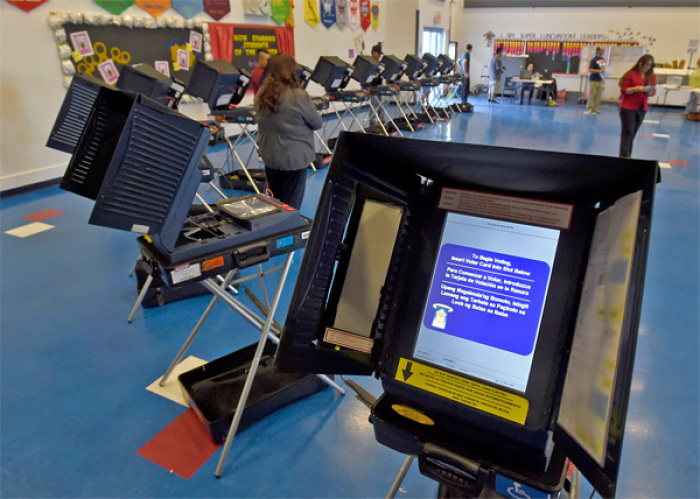4 possible outcomes of the 2020 presidential election

Candidates may ask for a recount if the margin is close
In many states, if the margin of victory is very close, an automatic recount is triggered. Several states also have a process that enables candidates to seek a recount in the absence of an automatic recount.
In Arizona, an automatic recount is triggered if the margin of victory is less than or equal to 0.1%. In Florida, a margin of victory within 0.5 percentage points triggers an automatic recount. The Real Clear Politics polling average for Arizona shows Biden leading Trump by 0.5% while the polling average in Florida shows Biden leading Trump by 1.7%.
A notorious swing state, several statewide elections in Florida have been subject to recounts in recent years.
Recounts took place in both the Senate and gubernatorial races in 2018 and the results of the 2000 presidential election came down to a recount in the Sunshine State, which Republican George W. Bush won by a razor-thin margin of 537 votes.
In Michigan, an automatic recount is triggered if the margin of victory is 2,000 votes or less. In 2016, Trump’s margin of victory was 10,704 votes.
In Pennsylvania, a margin of victory of 0.5% or less will trigger an automatic recount. In 2016, Trump’s margin of victory was just outside that threshold at 0.73%.
In Georgia, a candidate may request a recount if the margin of victory is 1% or less. Currently, the RealClearPolitics polling average shows Trump leading Biden by 0.2 percentage points, illustrating that such a scenario is certainly possible.
In North Carolina, candidates may request recounts if the margin of victory is less than 0.5% or 10,000 votes, whichever is smaller.
Wisconsin enables candidates to request recounts if the margin of victory is less than 1%. Wisconsin is one of several states that require the candidate to provide the finances necessary to conduct a recount.





























